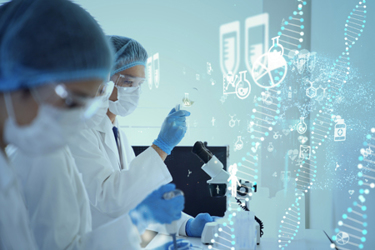Developability: Making Better Bets On Biologic Winners

By Matthew Pillar, Editor, Bioprocess Online

Biotherapeutic discovery and development is exciting business, in part because of its potential to reveal previously undiscovered therapeutic and curative molecules, and in part because the stakes are so very high. When you expedite a winner, the potential benefit to investors, and more importantly patient populations, can be incredible. When you dwell too long on a loser, the mounting development and reputational costs can debilitate a biopharma company.
Gene Lee, Ph.D. has spent his career refining the tools and knowledge required to pick early winners. He honed those skills as principal research scientist the Wyeth Genetics Institute and Wyeth BioPharma, Director of Cell Line Development at Percivia, and roles including Senior Director and Global Head of Protein and Cell Sciences, U.S. Site Head of Discovery and Development Technologies at EMD Serono. Today, he’s VP of Technical Development at AltruBio, a clinical-stage developer of mAbs focused on immunological diseases. Dr. Lee joined us on episode 66 of the Business of Biotech podcast to discuss CMC developability assessments, and more specifically, how leveraging them during the discovery phase of novel biologics speeds up entry into Phase I clinical trials.
The Lean Startup Biopharma Advantage

With solid science behind a discovery-level candidate, those strategic decisions are first driven by business and market factors. To determine a molecule’s deservedness of the considerable investment required to pursue Phase 1, Dr. Lee says it must be competitive and differentiated from other molecules in development, in the clinic, and on the market. Then, it’s a matter of determining whether the molecule can be effectively manufactured. That’s where CMC developability assessments come in.
CMC Developability Starts Early
In a nutshell, CMC developability assessments are the exercise of “determining whether you can make the thing,” says Dr. Lee. You might have a brilliant idea to cure a disease; an antibody that targets something on a tumor cell, or a T cell. You believe it will affect the biology of the disease in a way that has a good chance of treating it. “That’s when developability begins—at concept generation, when you’re thinking about what the molecule will look like and how you’ll design it,” says Dr. Lee.
For myriad reasons, not all designs can be effectively, or efficiently, manufactured. “If you simply can’t manufacture the molecule, it’s not going to go anywhere,” says Dr. Lee. Likewise, if the molecule requires a very long and intensive development exercise that lends to an expensive manufacturing effort that will in turn be passed on to patients and payors, its likelihood of commercial success might be questionable. “It's better to realize this before you've invested too much time, money, and energy into a project,” he says.
There isn’t a ‘too early’ when it comes to assessing developability, says Dr. Lee, but there is the risk of investing too much, too early. “You don’t want to conduct the mother of all developability assessments at the earliest stage of your discovery efforts, because you don't want to squash innovation or ingenuity. You want to give ideas a chance to breathe, to see what they can do from a functional perspective in your discovery laboratories. So, an early developability assessment might simply consist of prototyping many potential designs and tabling those that are less promising than others.”
The Importance Of The Discovery Laboratory
Discovery laboratories, says Dr. Lee, should be equipped to conduct these early assessments. “They’ll include a protein expression group to supply material to all the research teams for preclinical and animal studies. Laboratories equipped to do this sort of early protein supply and QA are already well equipped to assess developability. They're the first set of eyes on how the molecule expresses and how it behaves during purification, such as whether or not it’s aggregating or falling out of solution under different salt conditions.”
Then, says Dr. Lee, more mature, process-relevant manufacturability assessments should be applied to the molecular designs that exhibit the best promise. “This is when you prototype the molecule in a process that resembles the process you would use on the manufacturing floor, a predictor of how your molecule will behave in a manufacturing setting.”
Dr. Lee says monoclonal antibody developability assessments have been standardized. “We can evaluate mAbs in a platform process to see how well they’re expressed and how well they behave in a recombinant cell line,” he says. “Some antibodies have a tendency to clump together or aggregate, and generally speaking those will not be developable in the long run.”
Other molecules of interest, such as bi-specific antibodies and FC fusion proteins, are more complex and therefore present a greater chance of being undevelopable, says Dr. Lee. “It’s very important to assess developability of these early on to make sure that you're not placing all your bets on something that you simply won’t be able to make.”
Dr. Lee shares much more insight and advice on how to implement developability assessments into your workstream, and why that’s so important to speeding the journey to phase I clinical trials, on episode 66 of the Business of Biotech podcast.
